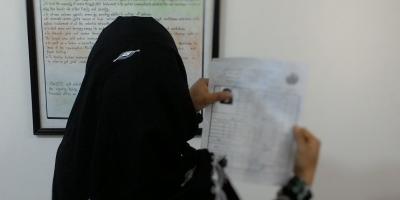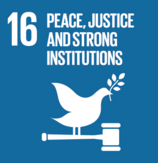
I was facing a lot of problems …. my case was not addressed in court……I didn’t have the possibility of opening my own bank account ….. the money I was getting from sewing, knitting and cooking had to just be kept in the shelter’s office.
Leila* is just one of dozens of Afghan women living in protection centers, or shelters, across the country, the survivors of domestic, sexual and gender-based violence (SGBV).
The UN estimates that 87% of Afghan women have experienced physical, sexual or psychological violence, or forced marriage. There are currently just over thirty women’s shelters in twenty-two of the country’s thirty-four provinces.
Where these are an option, having summoned the courage to seek refuge from the abuse they were suffering, the women go on to face many other, unexpected, challenges as they try to go about, seemingly, every-day tasks and rebuild their lives.
Many leave their homes, and often those who perpetrated the violence against them, with few belongings and no option of returning.
 |
2030 Agenda: under the newly adopted SDG’s, goal 16 includes the target of ‘providing legal identity to all by 2030’. |
In Afghanistan, a woman’s tazkira – or national identity card – is linked to their father or husband, yet these papers are essential for the most basic of activities from visiting hospital, going to college, and opening a bank account, to getting a job and remarrying.
IDLO works in Afghanistan supporting Women’s Protection Centers and Elimination of Violence Against Women Units. The shelters provide the women with a safe-house whilst pursuing legal proceedings against the perpetrators of violence against them, but they also offer the women the chance to take courses and gain valuable skills, from learning to read and write, to acquiring a trade, and familiarizing themselves with women’s and children’s rights.
IDLO has also played a critical role in establishing the Afghanistan Shelter Network, an umbrella group for women’s refuges. Meeting on a monthly basis, the network comes together to coordinate efforts to support female victims of abuse and discuss shared challenges; one of the crucial issues identified by the group centred around the difficulties faced by women in the shelters when accessing healthcare, housing and employment without a tazkira. To apply for new ID, a male guardian had to accompany the women and give consent.
The Shelter Network took their complaint to First Lady Rula Ghani – she and her husband, President Ashraf Ghani, have pledged on numerous occasions to work to improve the situation for women in Afghanistan. In a letter to the Ministry of the Interior, the First Lady’s Office outlined the plight of survivors of SGBV in accessing their rights, and requested that an initial two hundred and twenty-five women be issued with new ID cards.
‘I feel differently now,’ says Leila, on becoming one of the first forty-seven women to receive their new tazkira.
‘I can say that I am an Afghan citizen. I can have a bank account to deposit my money in. I can study like other girls and continue my education, work in an office, and stand on my own feet.’
*names have been changed to protect the identity of SGBV survivors

